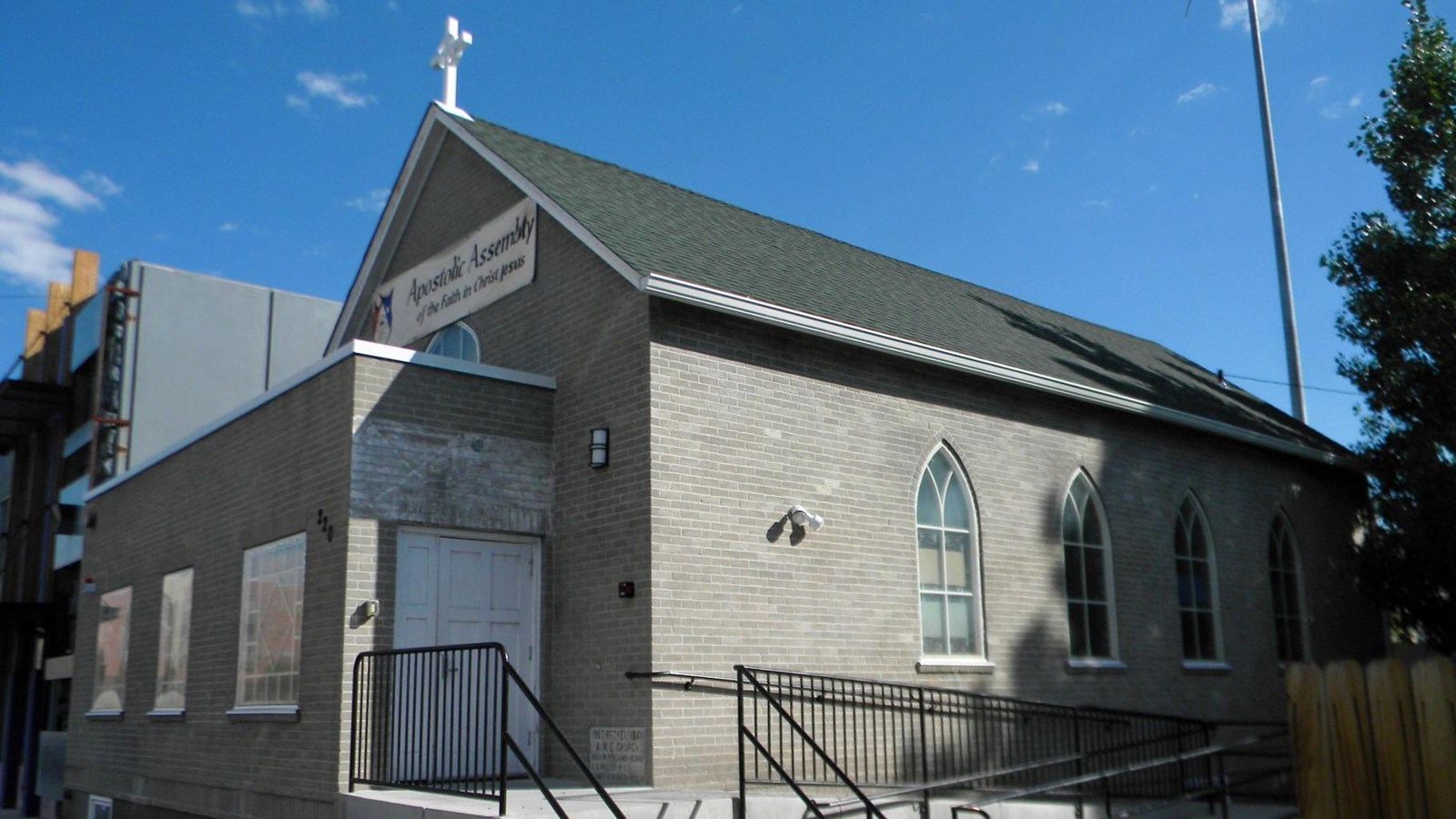Last updated: May 6, 2020
Place
Nevada: Bethel AME Church

By Jon Roanhaus, CC BY-SA 3.0, https://commons.wikimedia.org/w/index.php?curid=35475425
The Bethel AME Church in Reno, Nevada, was a religious, social and political center of the African American community, initially for black settlers in the 1910s, and later for local civil rights activists during the 1960s. From its inception, Bethel AME has held to the principles of the AME church to provide self-expression and fuller involvement in society as a means through which members could gain a sense of dignity and self-respect. Bethel AME Church has fostered social equality through its active role in the community, through its direct link with the National Association for the Advancement of Colored People (NAACP), and through its abiding dignity in the face of conspicuous and unrelenting discrimination.
During the early 1940s, Bethel AME's minister, Rev. Emmer Henry Booker, corresponded with Nevada Governor E.P. Carville to promote racial equality. In early 1941, Booker sought new quarters for the Bethel congregation, which wanted to expand its facilities to include a kitchen and social hall. The church proposed to purchase an existing building in the predominantly white area of northwest Reno, near the University of Reno and Reno High School. Protests were made by the University, the school board, and Gamma Phi Beta Sorority at a Reno city council meeting against the black congregation moving to that section of the city. Due to the protests, the congregation decided not to move to another building, but to enlarge and renovate the existing church. The clapboard church was sheathed in brick, the vestibule enlarged, and a full basement constructed for offices, kitchen, a choir room, library and study, and parlor. The events that prompted the renovation of the building reflect the struggle for civil rights in the city of Reno.
Until the 1960s, Reno practiced non-legislated segregation; African Americans were restricted in housing and employment opportunities, were not served in white restaurants and bars, could not enter white casinos, or stay in white hotels. Many members of Reno's NAACP chapter, founded in 1919, were also congregants of Bethel AME, and the church acted as the official meeting location of the chapter. Drawing attention to the discriminatory practices of Reno's businesses and government, the NAACP branch led activities such as picketing the local Woolworth store in 1960. Today, Bethel AME Church is one of the most significant buildings in the State of Nevada associated with its African American population and the civil rights movement.
Visit the National Park Service We Shall Overcome travel itinerary to learn more about the civil rights movement themes and histories. Also, be sure to check out Civil Rights subject site.
